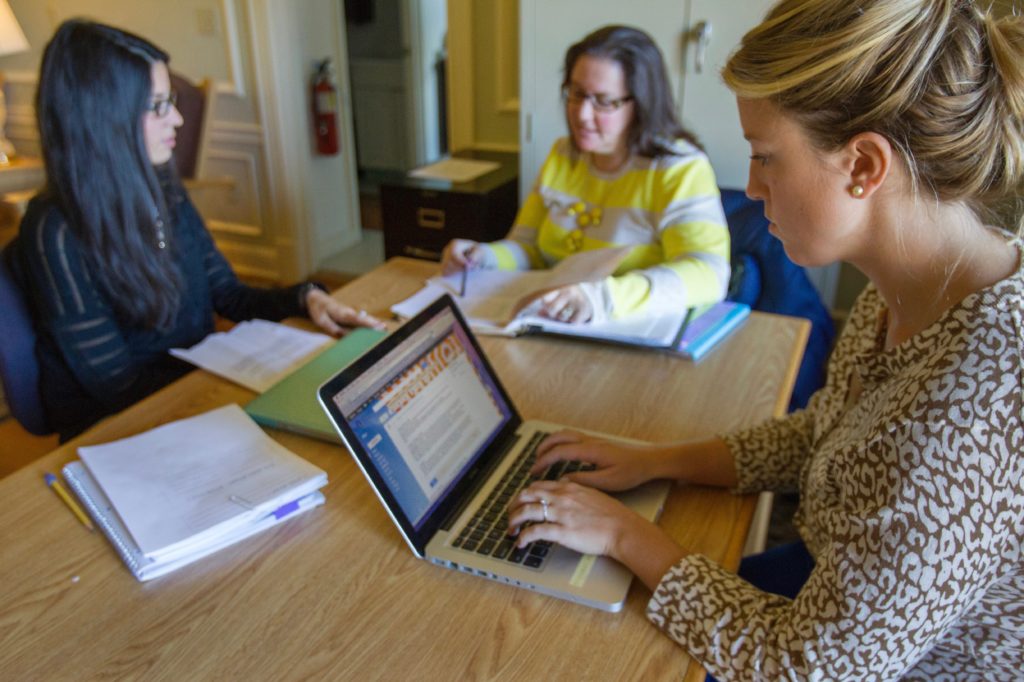Course Credit 15 Hours/PDPs
With an option to add 1 graduate credit from Fitchburg State University
This professional development course provides educators with an overview of language development and second language acquisition. Culturally Responsive Reaching (CRT) and subgroups of Multilingual Learners (MLs) are explored. Further, this course addresses the distinction between language differences and disorders, with a particular emphasis on MLs with language-based learning disabilities (LBLD). Lastly, it introduces instructional strategies to support MLs with LBLD. As a result of the learning experiences in this course, participants will be more competent in their ability to:
- Outline the stages of language development and second language acquisition
- Explain how a student’s cultural and educational background impacts learning
- Recognize effective culturally and linguistically appropriate evaluation procedures and assessment measures
- Implement a variety of instructional strategies to support MLs with LBLD across all content areas using principles from Universal Design for Learning (UDL)
The course is divided into six self-paced modules over 6 weeks:
- Language Acquisition: This module presents an overview of language acquisition, including specific language domains (phonology, morphology, syntax, semantics, and pragmatics/discourse). It also introduces terms and stages associated with second language acquisition.
- Cultural Considerations: This module explores the importance of creating a welcoming environment for MLs. Additionally, Culturally Responsive Teaching (CRT) approaches and subgroups of MLs are explained.
- Assessment: This module identifies common signs of language-based learning disabilities and explains the importance of differential diagnosis for MLs. It also presents legal regulations that must be considered when evaluating MLs and explains the WIDA ACCESS assessment.
- Principles of Multilingual Instruction: This module outlines specific instructional frameworks to support MLs in the classroom – Sheltered English Instruction (SEI), Universal Design for Learning (UDL), and WIDA Standards and Resources.
- Supporting Access to Content: This module explains how to support MLs’ access to grade-level content with a focus on scaffolding, differentiation, ideas for using AI, and Landmark’s Teaching Principles™.
- Language and Literacy Instruction: This module explores instructional strategies that can support MLs with LBLD in the areas of vocabulary, listening, speaking, reading, and writing.
Each module will follow the same basic outline:
- Presentation of key information about the topic
- Explanations of the impact in the classroom
- A quiz to assess learning
- Opportunities to discuss and reflect on course content with peers
- A summation of the module followed by an opportunity to complete an application assignment
Specific Assignments:
- Pre and Post-Assessments: These ungraded questionnaires will be completed at the beginning and end of the course in order to self-assess knowledge and application of course content.
- Quizzes: The quizzes will assess comprehension of the content from the required reading. The quizzes will be automatically graded within the course platform. Although participants must earn an 80% or higher to move on to the next section of the course, there are unlimited attempts allowed.
- Discussion Posts: The discussions will require participants to post an initial response and reply to at least one other post.
- Assignments: The assignments in each module will require participants to put theory into practice as they read and follow the specific directions, and use examples provided as a guideline for format, length, and quality of writing. These tasks will be assessed using specific rubrics.
Materials
There is no required text for the course.
Graduate Credit
There is an option to add one (1) graduate credit to this 6-week course from Fitchburg State University. Graduate credit is optional; the cost is $210 and the non-refundable payment is made directly to Fitchburg. The timeline to opt into graduate credit is firm and cannot be accepted late. Details about the optional graduate credit will be embedded in the “Course Welcome” module of the online course so you can make your final decision at that time.
See our FAQ page for specific information about our online courses.
